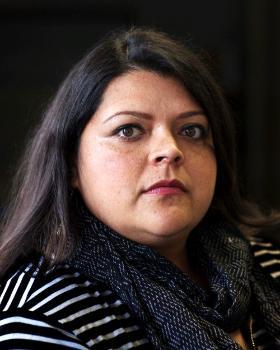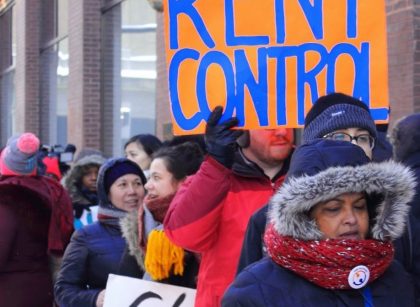
A metal recycling company with roots stretching more than a century is poised to move across town in Chicago. But residents in the East Side neighborhood aren’t exactly rolling out the welcome mat.
Plans are in motion for General Iron Industries to leave its longtime perch at 1909 N. Clifton Ave. in the Lincoln Park neighborhood at the end of the year and relocate to East Side, a section of the city with a large Latino population.
General Iron, whose parent company is Cleveland-based Reserve Management Group, has been under scrutiny in recent years for its operations along the North Branch of the Chicago River. The scrap metal shredder has a documented history of pollution problems and, more recently, was the site of an explosion May 18.
But a ruling June 25 from the Illinois Environmental Protection Agency all but paves the way for General Iron’s oft-discussed relocation 17 miles south to a former Republic Steel property near the Calumet River.
While the state EPA’s ruling is considered a crossed hurdle, the relocation remains pending as several loose ends are tied up, including permit issuances from the Chicago Department of Health.
Several East Side area grassroots organizations have been protesting General Iron’s planned move. Opposition groups have included the Southeast Side Coalition to Ban Petcoke and the Southeast Environmental Task Force.
As the pivotal state agency ruling came down with six months to go before the Lincoln Park operation closes, East Side residents did not mince words as they shared their thoughts about the ruling in prepared statements.
“We’re sick of having to put our lives on hold in order to fight back against a dangerous polluter because the state and city refuse to do their jobs,” Olga Bautista, co-founder of the Southeast Side Coalition, said. “Now that the state has rubber-stamped this permit, we need the city to step up and prevent this threat from coming to a vulnerable community.”
Peggy Salazar, director of the Southeast Environmental Task Force, said efforts to bring “environmental justice” to East Side and surrounding areas has been an ongoing process going as far back as the 1980s.
“We have been fighting for over 30 years for (environmental justice),” Salazar said in the statement. “The agency charged with protecting us and helping us to achieve our goal continues to disappoint and fail our community.”
Randy Samborn, a spokesman for General Iron, said the company is committed to being a responsible neighbor within the community.

“RMG has pledged to prioritize protecting public health and the environment, while meeting applicable environmental regulations and operating requirements,” Samborn said in an email interview with Chicago Mundo Hoy about the steps the company is planning to mitigate concerns.
From the company’s standpoint, Samborn said General Iron’s continued presence within Chicago will benefit the entire city.
“Keeping discarded autos, appliances and demolition materials out of landfills helps make Chicago a green, sustainable city, while conserving energy and natural resources,” Samborn said.
While talk of General Iron’s relocation has been a years-long process, the move came into sharper focus last fall when Mayor Lori Lightfoot’s administration announced an agreement had been reached to terminate operations in Lincoln Park by Dec. 31.
When the announcement was made in September 2019, Ald. Susan Sadlowski Garza, whose 10th Ward includes the planned future site of General Iron, struck a conciliatory note, expressing optimism the business could yield jobs for area residents.
More recently, however, Sadlowski Garza has shared reservations about the planned relocation, citing the explosion as a reason for renewed concern. In a Facebook post dated June 15, she described General Iron as a “new environmental threat” to her ward.
“Perhaps most aggravating for the residents of my community is the inherent environmental racism in moving a facility from an overwhelmingly white and wealthy Lincoln Park to an area which is working class, and disproportionately Latinx and African American in composition,” Sadlowski Garza wrote in the lengthy social media post.
With support from the Chicago Teachers Union and other labor unions — she is the daughter of a steel union activist — Sadlowski Garza defeated Rahm Emanuel ally John Pope by just 20 votes in 2015. Last year, she was selected to be the chair of the Chicago City Council Progressive Reform Caucus.
Sadlowski Garza added in her post, “Our voices need to be heard.”
The Illinois EPA has attached a number of provisions to its approved permit, including a requirement that an operation and maintenance plan be developed and implemented and the installation of monitoring devices to safeguard emissions.
- Optimism after the unrest - August 10, 2020
- Storied recycling company General Iron poised to relocate to East Side - June 26, 2020
- Head of Chicago Latino Caucus outlines legislative priorities for 2020 - March 23, 2020




